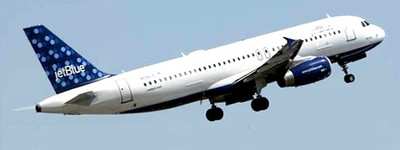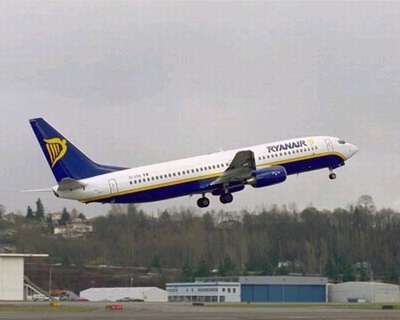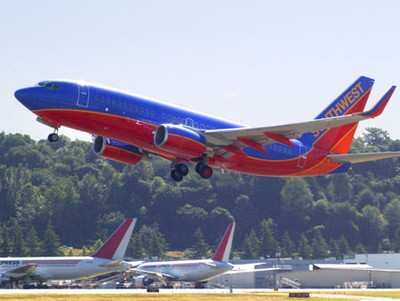Says Legacies May Soon Disappear As Budget Carriers Reap
Benefits
Some industry analysts and armchair pundits predict the current
spike in fuel prices -- and resulting cutbacks in airline capacity,
along with ever-climbing air fares -- may prove to have one
unintended benefit for US carriers, and some travelers. Those
persons predict that as fares climb, fewer "budget" flyers will
fill the planes, resulting in lower passenger numbers for legacy
carriers... but also a return to profitability, and possibly the
return of some onboard amenities and service that had disappeared
in the wake of cut-rate fares.

Raphael Bejar is CEO of Airsavings, a company that develops
business strategies for low-cost airlines... so, admittedly, there
is an agenda here. But Bejar's views are interesting -- he predicts
that as legacy carriers behave, in his words, like "desperate
creatures, slashing capacity and closing hubs," it's simply too
late for many of them.
"It's years too late and millions of dollars too short," says
Bejar, one of Europe's most outspoken proponents of the low-cost
airline model. "I'm surprised it took this long, for US legacy
carriers to recognize their model is broken."
Struggling to keep pace with deteriorating market conditions and
bloated costs, US carriers are instituting a mix of cost-cutting
and fee hikes, passing the exorbitant buck of air travel onto
consumers.
These measures may seem like sensible economic reactions -- as
costs go up, so do prices. But that rationale is built on a faulty
premise, says Bejar -- the supremacy of the legacy carrier business
model.
Some are even lashing out at low cost airlines. Bejar cites the
words of Gerard Arpey, CEO of American Airlines parent company AMR.
"The industry has been hurt by some airlines growing faster than
conditions warranted; that impact has worsened in light of recent
economic trends and soaring fuel prices," Arpey said.

Bejar responds Arpey chose to ignore the reason for the surging
popularity of low-cost carriers like Southwest, or Europe's
Ryanair: people want to fly, they want to do it cheaply, and they
want to arrive on-time. He says most US legacy carriers fail when
held against those simple expectations.
Predictably, Bejar believes it's time for US travelers to seek
an alternative to the "disastrous" state of air travel options --
by demanding low-cost travel.
"Offer the basics -- safety and a seat at low cost -- and let the
customers pay for everything else," he says. "And so far that's
worked well; low-cost airlines have outgrown legacy carriers by 25%
in Europe and 15-20% in the US.
Bejar adds as US carriers continue alienating customers with fee
increases, there'll come a point when consumers snap. "How many
times can airlines increase baggage fees to keep up with rising
costs -- 20, 30 times?" he asks. "There have been 12 fee increases
already this year; there'll be a backlash soon. The market here is
seeking a different product than what's offered by the
legacies."

According to Bejar, US legacy carriers have also ignored a key
aspect of low-cost airlines' success -- ancillary revenues.
"Successful LCCs, like Southwest and JetBlue, have transformed
no-frills air travel into a customizable experience, and have been
rewarded with growth and profitability," he says. "They've stripped
down flying to its elemental core and sold each fragment back to
willing customers... and if legacies are to survive, they must
adopt a similar strategy -- quickly."
 ANN's Daily Aero-Linx (04.30.25)
ANN's Daily Aero-Linx (04.30.25) ANN FAQ: Turn On Post Notifications
ANN FAQ: Turn On Post Notifications Classic Aero-TV: Agile Aeros Jeff Greason--Disruptive Aerospace Innovations
Classic Aero-TV: Agile Aeros Jeff Greason--Disruptive Aerospace Innovations Aero-News: Quote of the Day (04.30.25)
Aero-News: Quote of the Day (04.30.25) ANN's Daily Aero-Term (04.30.25): Expedite
ANN's Daily Aero-Term (04.30.25): Expedite





